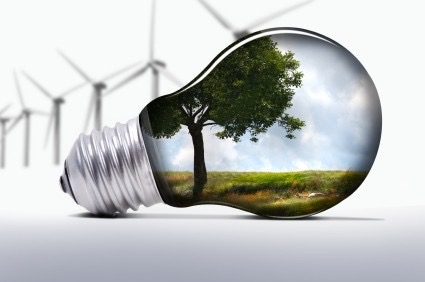Energy, a source of innovation
In the ever-changing era we are experiencing, if all sectors are concerned, energy is particularly engaged in change as reflected by the term “energy transition” that characterizes it. As soon as the transition begins, innovation is needed …
Innovation for all energy players… The new pioneers
If for the pioneers of the black gold, the novelty was to discover new deposits and the innovation was geographical and geological, today the pioneers of energy are everywhere and seek to innovate all over the place.
The war on energy is played out on all fronts: new methods, new sources, new players Producers, who are the core business, continue to explore as they have always done, but are looking for new methods to produce by limiting carbon emissions. Four petroleum giants, Exxon, Shell, Total and BP Have just joined the plan to reduce carbon emissions presented a few months ago by a group of moderate American Republicans. By publishing their favorable opinion on the taxation of greenhouse gas emissions in the Wall Street Journal, they implicitly commit themselves to finding methods to produce otherwise or to find new types of energy.
Innovation for operational excellence and transformation of traditional actors
Innovation will therefore have to enter the established giants of energy, or develop even more strongly, as an indisputable necessity, integrated into the concept of operational excellence.
Since the crisis of 2014/15 with the price of the barrel, the spirit “problem solving” had to impose itself with all to re-examine their productivity and to function otherwise than with the means of the rich years past.
All have launched programs of change … to name but a few: Shell has stepped up its “Game Changer” extensive program of transformation through innovation BP has managed incremental innovation by focusing on shallower exploration at lower risk and Total whose innovation is part of DNA has been resolutely embarked on a transformation through innovation at all levels of the company translated by the reorganization of 2016.
From Black Gold to Green Gold… A 360 ° Innovation
Energy is an area undergoing profound change that is influenced by all the waves of transformation at the same time: environmental, of course, but also, regulatory and digital, with the arrival of NBIC (Nanotechnologies, Biotechnologies, Artificial Intelligence, Cognitive Sciences).
It is played on all fronts of the company, marketing for products services but already upstream in production with industry 4.0. By prefiguring the tomorrow’s refining plant which allows the application of all forms of innovation, 360 ° innovation:
– incremental innovation or innovation that comes to improve existing products and services: ideas to improve quality, ideas to produce cheaper, ideas to produce low-carbon, ideas to produce by improving well-being at work… Type of innovation is the subject of internal challenges, operational mobilization and commitment in the implementation of projects. All energy companies have their internal systems of this type, Edf, Engie, Shell, Total… which form the basis of innovation
– radical innovation or innovation that brings change without questioning the business model; It allows to offer an additional service without compromising the existing balance; For example using a robot for drilling and releasing the workers from arduous stains; Disseminating solar energy lamps at service stations in Africa is an act of commitment in access to energy for all outside its core business while remaining within the scope of services of a station -services.
– the innovation of rupture or disruptive innovation is the innovation that rests on the creation of a use or a value different from the core business and that comes to question the existing business model; This type of innovation represents a risk for the usual revenues by proposing alternative sources of energy what the… representations are all necessary to go towards the “graal” of the clean and renewable energies.
Very dear innovation, innovation… Paid for very dearly
Renewable energies arouse interest… But it is true that their promises are enticing. Clean and abundant, they would both help finally serve the billion people still without electricity, and cover the growing demand of emerging economies, with China leading, but without aggravating global warming.
The International Energy Agency (IEA) and the Giec (the United Nations Climate Research Congress) are recommending that their share of world production should be jumped by 13% of the total today 48% in 2035 (IEA) and 77% in 2050 (Giec).
This will require massive investment of some $ 6 trillion to meet the IEA target by switching to clean electricity and a new generation of biofuels. And the share of public funds will be decisive: annual subsidies to the sector, currently $ 57 billion, would exceed $ 200 billion in twenty-five years.
The States are worried and question their role and energy companies will have to tap into their “treasures of war” to finance these new business.
Innovation in all its forms… Reconciling safety and creativity
To achieve this great movement of disruptive transformation, there is another area that will require investment… of the Human variety.
The field of energy, traditionally oriented towards safety for obvious reasons linked to the dangerousness of the activity, must today manage the paradox of security and creativity, allow to reconcile strict compliance with instructions and capacity of to imagine new modes of operation.
This great cultural gap is not easy and will require a significant amount of investment in the human.
All the actors of the energy of today will have to accomplish these adaptations, voluntarily for the most enterprising or forced by the movement for others, question their habits, their professions (40% of the today trades should disappear by 2030), their behavior.
One of the other ways of disruption is the contribution of innovative start-ups through venture capital. Again, it will be necessary to manage “risk” and “security”… Financial, to reconcile processes of large organizations without hindering the agility of the start ups acquired.
Energy innovation programs will have to train new methods, agility, recruit new skills on new trades, integrate new skills to integrate the start-up spirit and its agility, unleash the creative spirit and His ability to imagine “out of the box” to invent the energy of tomorrow




Leave a Reply
Want to join the discussion?Feel free to contribute!